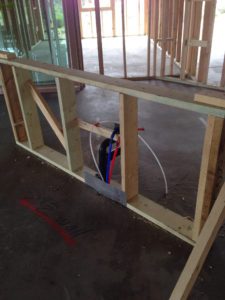
Reader Question: Here is a home inspector’s question. Customers tell me I am a good inspector. I always want to improve my methods when I can. Your answer to this question may help focus my efforts. What are the main questions you get from consumers about home inspectors?
Monty’s Answer: Incorporating the continuous improvement philosophy into your operation is one of the main traits of a successful business. Answering your question may inspire consumers looking for inspection information to ask the right questions. Here are six types of frequent questions and a seventh question, number two, that I have seen once. The most frequently asked question is number seven.
- What does a home inspection cover? The major components of the home will be visually inspected. Sometimes, the inspector will recommend a specific type of contractor be engaged to examine a component. You will receive a written report outlining details about the home and the inspection results, including photographs. Components inspected include the roof, heating and cooling units, plumbing, electrical system, structure, foundation, major appliances, the attic and crawlspace (if accessible) and more. Keep in mind; an inspection is made as of the particular date. The condition will change after that point in time as most things on earth are wearing out a little bit every day.
- What should we be inspecting when building a home? Building a home has different inspection points. Check the proposed elevation of the top of the poured foundation to ensure the pitch will drain away from the foundation. Verify the lumber grades and species to make certain they match the specifications before beginning to frame. Verify the OSB board (or plywood) and the weather resistant barriers are as specified in the contract specifications. When the shingles are delivered, check on-site if the style, color, and grade are as expected. Make sure the location of rough-in work for the HVAC, electrical and plumbing (including ductwork and HVAC vent piping) follow the blueprint. Make sure the vent pipes are coming through the roof on the backside. Then check the completion of insulation install in the walls and ceilings. Consider a home inspection upon completion because contractors make mistakes.
- Should we use an inspector on an agent’s team? Monty neither endorses nor discourages a relationship between a home inspector and an agent. Anecdotally, being suspicious of such relationships may be well founded. On the other hand, we are confident there are inspector/agent relationships that are entirely above board. Monty recommends that three inspectors be vetted before making a choice.
- Do I need an inspector on an “as is” purchase? One must remember that the main reason for an inspection is to discover ‘material defects” that adversely affect a property’s value. A teardown is a rare example where a home inspection will not be helpful. No buyer wants to find an expensive defect they were not aware of after closing. In most states, the seller is still required to complete a condition report. Sometimes, “ As Is” turns into just one more negotiation.
- Should we buy a pre-offer inspection? There are advantages and disadvantages with a pre-offer inspection. Consider a pre-offer inspection even though they make many real estate agents uncomfortable. Monty believes a seller purchased home pre-inspection with a “recheck clause” at a lower price on a sale would eliminate a lot of angst from real estate transactions. It does not matter which party pays for the inspection; it just has to be accurate.
- How do we pick a quality inspector? Choosing a home inspector requires the same kind of due diligence required when selecting and other service providers. Ask someone you respect that has recently bought or sold a home how the inspection went. Review a sample report and interview three of them by telephone, or better yet, email your questions to them.
- Our inspector missed [issue]. What can we do? There will be times even the most experienced inspector can miss a defect. The main reasons this can happen is because a home seller conceals the defect or because it is not visible. Inspectors will often recommend additional investigation when they are uncertain about cracks in unusual places, water stains, uneven floors, and other clues, such as 100 + year old homes, that raise suspicions, but sometimes, there are no clues.
The home inspection industry continues to evolve as a relatively new service offering in real estate. It has come a long way.


